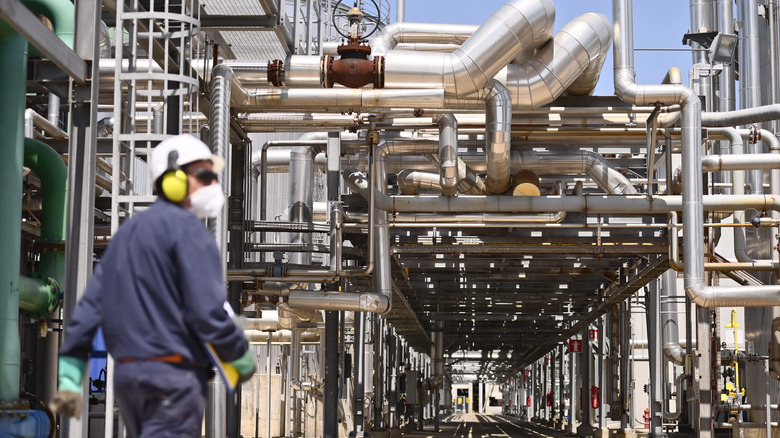The 60 Minutes Interview That Led To Steve Kroft Getting In Trouble For Trespassing
"60 Minutes" is renowned for the kind of investigative reporting that can pose risks to the reporters. This isn't to say they always hit the mark, as the show's controversial 2013 Benghazi segment led to producers apologizing more than once. Many angry viewers also recently reminded the show's producers of this fact by sending in complaint letters. In search of a good story, a journalist can often get into trouble. Granted, there are different levels of trouble. The female photojournalists who are the subjects of CNN's "No Ordinary Life," traversing and documenting war zones and disaster areas, are in a league of their own.
Steve Kroft is no stranger to these dangerous journalistic situations either. Not only did he serve in the US Army during the Vietnam War –- eventually becoming a reporter for the Armed Services Network –- he's reported from invasions and armed conflicts as far-flung as Grenada and Lebanon (via Syracuse University).
Legal troubles are a different matter, certainly not as physically dangerous, but still taxing in their own way. The most famous example of this in the "60 Minutes" pantheon is the show's battle with the tobacco industry to bring proof of nicotine addiction to the public (via CBS News). There are others that are more mundane, even inconsequential in the grand scheme of journalistic vigor. Nonetheless, they have massive ramifications for our health, our lives, and our safety.
Steve Kroft walked into a chemical plant
It was during the height of the War on Terror that concerns about security and basic safety were paramount in public discourse. One would think that security at a plant dealing in dangerous and toxic chemicals would be of prime concern, but Steve Kroft found otherwise. In September of 2003, Kroft, accompanied by videographer Gregory Andracke and Pittsburgh Review-Tribune reporter Carl Prine, simply walked into the Neville Chemical Plant just outside Pittsburgh.
At the time, this plant housed several deadly chemicals including boron trifluoride and anhydrous ammonia. Not only did they get in, but they were also able to openly walk around and wave to employees, despite having gone through absolutely no vetting process (via CBS News). Ultimately, Kroft and company were approached by security and escorted to an office. The police were called, and they were cited for trespassing, which carried a cost of $25 plus court costs (via RCFP).
As Prine pointed out, "What if we had been terrorists? That boron trifluoride would be up now, wouldn't it?" After the story aired in November of 2003, more reporting on lax security at chemical plants followed. Attention was similarly drawn to the chemical industry's efforts to squash attempts at regulation and tighter government control. It took the "60 Minutes" segment for the industry to admit that its security measures weren't up to snuff and to agree to some form of regulation (via EHSToday).

